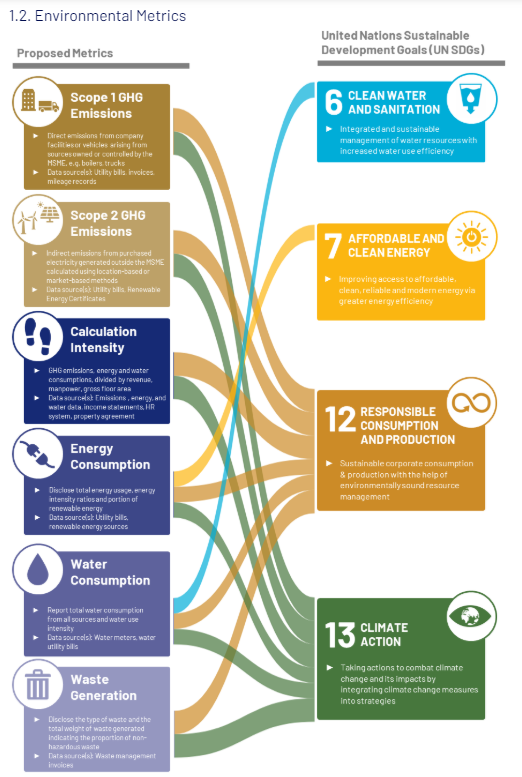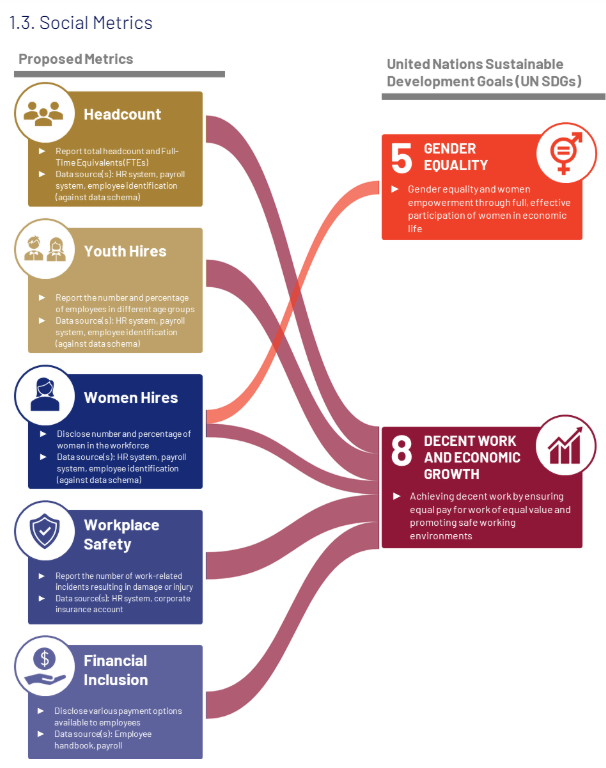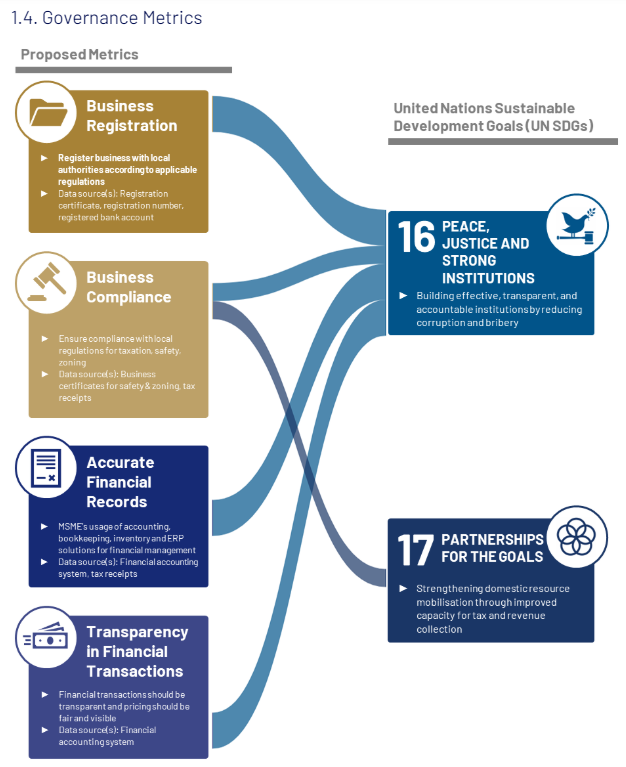In a promising collaboration, the United Nations Development Programme (UNDP) has joined forces with the Monetary Authority of Singapore (MAS) and the Global Legal Entity Identifier Foundation (GLEIF) to launch Project Savannah, a potentially transformative initiative aimed at empowering Micro, Small, and Medium-sized Enterprises (MSMEs) in their sustainability reporting journey.
Project Savannah was launched in June 2023 as a collaborative effort between the three entities to provide a strong foundation for the way MSMEs approach Environmental, Social, and Governance (ESG) reporting by focusing on three key pillars: Metrics, Technology, and Opportunities.
According to a recent white paper on “Project Savannah: Common ESG Metrics for Generating Digital Sustainability Credentials for MSMEs”, the initiative comes at a crucial time, as MSMEs — which account for around 90% of businesses, over 60% of employment, and half (50%) of GDP worldwide — face increasing pressure to disclose their sustainability performance to stakeholders such as corporate partners, regulators, and consumers.
The Importance of MSMEs in the Global Economy and Sustainability
MSMEs play a vital role in driving economic and social development by fostering value-adding activities, participating in global supply chains, driving innovation, and promoting inclusive growth through job creation.
However, despite their collective contribution of at least 50% of Greenhouse Gas (GHG) emissions in the business sector, surveys indicate that most MSMEs are still in the early stages of their net zero journey, implementing only basic actions to reduce their carbon footprint.
Project Savannah aims to address the challenges MSMEs face in transitioning to impact-driven decision-making, such as the lack of guidance, complex reporting frameworks, and limited resources, by providing a streamlined, accessible, and technology-driven approach to ESG reporting tailored specifically for MSMEs.

Source: Project Savannah: Common ESG Metrics for Generating Digital Sustainability Credentials for MSMEs
Pillar 1: Harmonising Metrics for MSMEs
The first pillar of Project Savannah focuses on establishing a globally relevant and harmonised set of common ESG metrics for MSMEs. The proposed framework consists of 6 Environmental, 5 Social, and 4 Governance disclosures, that are designed to direct reporting companies’ focus on how sustainability issues affect their businesses and how their businesses impact people and the environment.
By providing a clear and concise framework for reporting, Project Savannah aims to simplify the process of generating basic ESG credentials for key stakeholders, including regulators, financial institutions, and supply chain partners. This standardised approach will enable MSMEs to track their progress, identify areas for improvement, and demonstrate their commitment to sustainability.

Source: Project Savannah: Common ESG Metrics for Generating Digital Sustainability Credentials for MSMEs
Pillar 2: Leveraging Technology for Simplified Reporting
Project Savannah recognises the vital role of technology in streamlining the ESG reporting process for MSMEs. The second pillar of the initiative focuses on matchmaking MSMEs with innovative solutions that simplify ESG data collection and reporting.
By harnessing cutting-edge technology and collaborating with industry partners, Project Savannah aims to make sustainability reporting cost-effective and user-friendly for MSMEs, enabling them to evaluate and report their sustainability performance against the common baseline metrics with ease.
The initiative acknowledges the digitalisation challenges faced by MSMEs, especially in emerging countries, and advocates for an ecosystem approach involving utility providers, fintech participation, and capacity-building measures to bridge the digital divide.
Pillar 3: Unlocking Opportunities through Verified Data
The third pillar of Project Savannah revolves around creating a robust network of opportunities for MSMEs. By utilising Legal Entity Identifiers (LEIs), the initiative aims to facilitate the transmission of verifiable ESG data to financial institutions and multinational corporations.
GLEIF’s LEI, acting as a digital passport for MSMEs, can strengthen their global visibility and credibility by providing a globally accessible, regularly verified, and consent-driven digital identity framework. This will promote access to green procurement, financing, and supply chain opportunities for MSMEs that demonstrate their commitment to sustainability.
Project Savannah’s comprehensive network will support and amplify sustainable business practices, helping MSMEs unlock new avenues for growth and success.

Source: Project Savannah: Common ESG Metrics for Generating Digital Sustainability Credentials for MSMEs
The Power of Collaboration and Impact
According to the white paper, Project Savannah exemplifies the potential of collaboration in driving positive change. By bringing together the expertise and resources of the UNDP, MAS, and GLEIF, the initiative is poised to make a significant impact on the sustainability landscape for MSMEs.
This collaborative approach ensures that Project Savannah is grounded in the realities faced by MSMEs worldwide, while leveraging the latest advancements in technology and data verification, as per the white paper.
The report outlines how the initiative seeks to inspire a common framework for ESG data disclosure by MSMEs, and further collaboration with government agencies, financial institutions, standard-setting bodies, and technology solution providers is crucial to bolster MSMEs’ efforts to report ESG data.
Empowering MSMEs in ESG integration not only elevates their global economic standing and unlocks opportunities for improved financing and partnerships but also positions them to navigate evolving sustainability regulations, encompassing current and upcoming initiatives within domestic and international jurisdictions.
These include the Corporate Sustainability Reporting Directive (CSRD) in Europe, the IFRS Sustainability Disclosure Standards introduced by the International Sustainability Standards Board (ISSB), and the climate proposal by the United States Securities and Exchange Commission (US SEC).
Game-changing Potential of Project Savannah for MSMEs
Project Savannah is a potential game-changer for the smaller businesses that form the backbone of global economics, providing MSMEs with the tools, support, and opportunities they need to embrace sustainability reporting and thrive in the global economy.
By harmonising metrics, leveraging technology, and unlocking opportunities, Project Savannah was launched with the mindset to empower MSMEs to navigate the complex world of ESG reporting with confidence and ease.
As the initiative gains momentum, it has the potential to transform the sustainability landscape, driving positive change and creating a more inclusive and sustainable outlook for the financial operations of smaller businesses globally. Project Savannah is a clarion call for MSMEs to join the sustainability drive taking place worldwide, and produce measurable results as major contributors in the global economy.
With the backing of the UNDP, MAS, and GLEIF, and the support of key stakeholders, Project Savannah is poised to contribute to achieving the UN’s Sustainable Development Goals by making a lasting impact on MSMEs worldwide.
- SEO Powered Content & PR Distribution. Get Amplified Today.
- PlatoData.Network Vertical Generative Ai. Empower Yourself. Access Here.
- PlatoAiStream. Web3 Intelligence. Knowledge Amplified. Access Here.
- PlatoESG. Carbon, CleanTech, Energy, Environment, Solar, Waste Management. Access Here.
- PlatoHealth. Biotech and Clinical Trials Intelligence. Access Here.
- Source: https://fintechnews.sg/95197/green-fintech/how-project-savannah-paves-the-way-for-msmes-to-embrace-esg-reporting/




